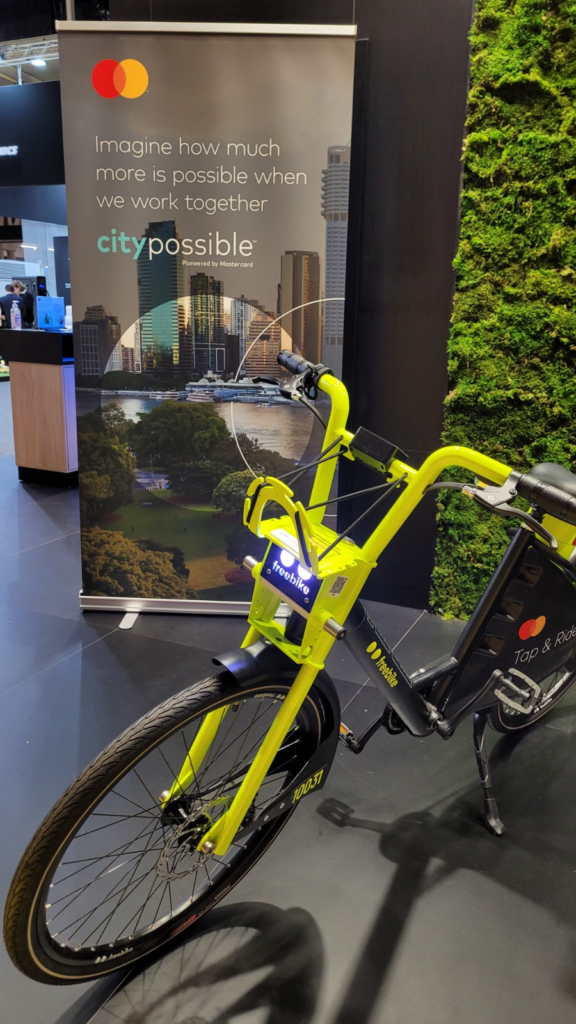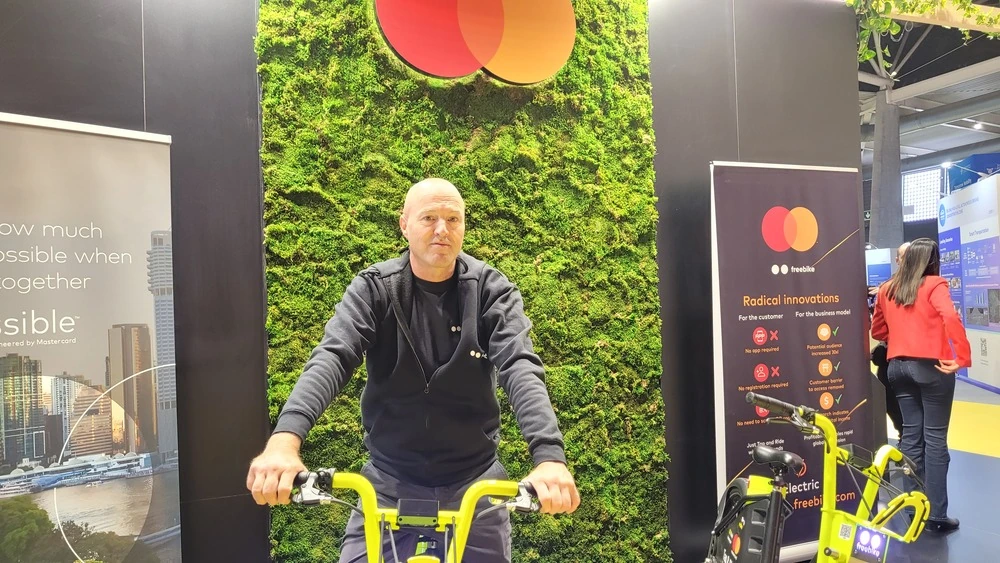In an innovative alliance, Mastercard and Freebike join forces to introduce the world’s first shared electric bike system with “tap and ride” payment technology.
Charles Butler, CEO and founder of Freebike, reveals to Mobility Portal Europe: “The initiative aims not only to transform urban mobility but also to establish a profitable and sustainable business model.”
If successful, the initiative could expand to all European cities and “possibly even beyond.”
Mastercard’s choice to support this project is based on the innovative “tap and ride” feature.

This allows users to use the bike without needing an app or registering the first time. “You simply touch it with your card, mobile phone, or smartwatch.”
Moreover, payment can be made with any bank card, whether credit or debit.
“Even if you have the app, it will probably take you 20 to 30 seconds to operate. Whereas with ‘tap and ride,’ it’s two to four seconds,” he insists.
Freebike’s electric vehicles, equipped with the “tap and go” payment technology powered by the multinational financial services company, are designed to offer convenience and simplicity to users.
Therefore, Freebike encourages clients to park their eBikes at virtual stations, a step towards a more comfortable city.
Simply by pressing the brake and tapping the card, a user can access an electric bike to navigate the city.
This eVehicle has a screen showing real-time information on the next station’s location, the paid fare, and the accumulated expenses during the journey.

The last piece of information presented is the bike’s range, reaching 135 kilometers in total when the battery is fully charged.
Freebike provides a shared electric bike service as a form of public transportation in the city. And even in the private sector, as a unique and effective means of transportation for businesses and their employees.
The cost in each city will vary, offering the service without an initial fee and unlocking fee.
“We believe the right price for most of Europe is only 15 euro cents per minute,” Butler reveals.
The project has a kind of technical pilot carried out in Helsinki, and they hope to start in Lahti, Finland, and a French city next year.
Meanwhile, the electric bike, along with the app, is being offered in France, Finland, Slovakia, the United Kingdom, and the Czech Republic.
This pilot also aims to avoid traffic congestion, eliminate air pollution, CO2, and so on.
If the project succeeds, it could “expand worldwide.” Also, there could be one of these electric bikes for every 250 people.
According to Butler, currently, all companies are not profitable but rely on shareholder funding with limited resources.
In this regard, he emphasizes: “Therefore, the proposal is to structure the project in a way that can be carried out without depending on government backing.“
Mastercard and Sustainable Mobility
From Mastercard, they assure they are committed to simplifying urban mobility and partnering with companies that share that vision.
For example, Freebike, with its eBikes, “has dramatically simplified the user experience and eliminated some of the biggest barriers to entry for potential users.”
At the Smart City Expo World Congress (SCEWC) 2023 held in Barcelona, the financial institution made it clear that to drive urban life, it is necessary to leverage strong partnerships between sectors.
Is it possible to extrapolate this system to eScooters?
According to the CEO, the tap and ride technology could be applied to electric scooters.
However, due to the narrow use cases and short distances, i.e., the user demographic is narrow, “it will be difficult to achieve profitability.”
“Personally, I don’t believe in scooters,” Butler asserts.








